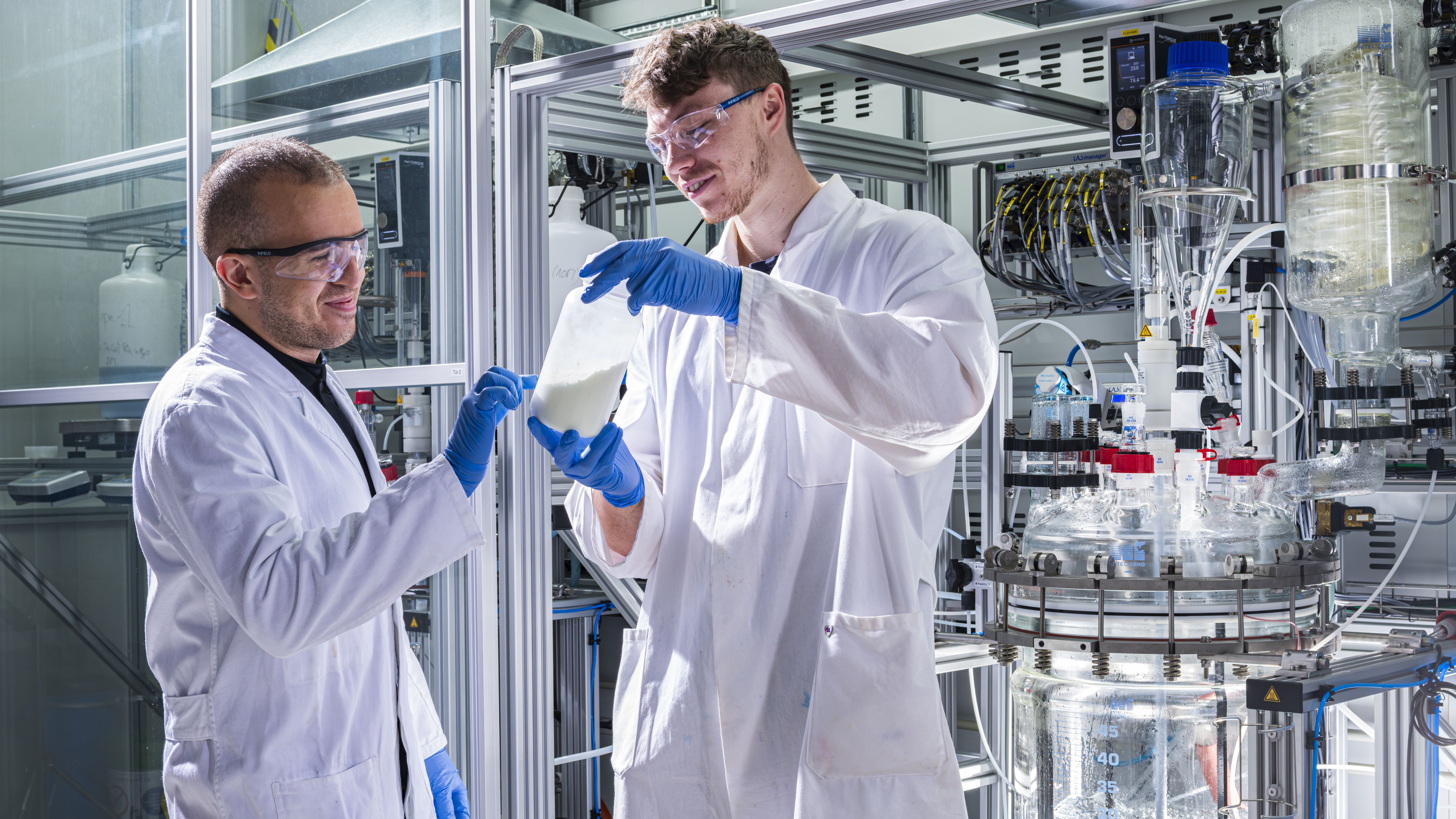Powerful, safe, and sustainable – sodium-ion batteries have many advantages over conventional batteries. As they do not contain any critical resources like lithium or cobalt, they will also reduce costs of stationary energy storage systems and electric mobility. So far, however, energy storage materials required for production have been lacking. Litona, a startup established at Karlsruhe Institute of Technology (KIT), will produce these materials on an industrial scale. From April 22 to 26, 2024, Litona will present its work at KIT’s stand in the “Energy Solutions” hall (hall 13, stand C76) at Hannover Messe.
Prussian White is “chemically related” to the well- known dye of Prussian blue. It is mainly based on sodium, iron, and manganese. “This energy storage material can be used at the cathode, i.e. at the positive terminal, of a sodium-ion battery,” says Sebastian Büchele from KIT’s Institute for Applied Materials, who founded Litona. “Such batteries are inexpensive and all the necessary resources are widely available. I am convinced that we will soon use them in electric vehicles and stationary energy storage systems.” However, it is still unknown who will produce them. European industry is facing a major problem. “At the moment, even research institutions have considerable difficulties in purchasing sufficient quantities of Prussian White. There are hardly any producers in Europe,” the scientist explains. “This significantly impairs research and transfer of the promising sodium-ion technology.”
Prussian White for Mass Production
When Büchele started researching sodium-ion technology, he decided to synthesize Prussian White on his own. This work at KIT did not only result in a high-quality cathode material, but also in an innovative production process. To serve a bigger market, he founded Litona together with chemist Tom Bötticher. “Our competitors had problems in scaling the production of Prussian White analogs,” Büchele says. “We think that we have solved these problems. Moreover, we have developed methods to further improve our material.”
An Opportunity for European Industry
To validate the scaling steps and optimize the material for use in next-generation batteries, Litona used the infrastructure of KIT. Meanwhile, both researchers have already started setting up state-of-the-art production facilities.. “We made a conscious decision in favour of Germany,,” Bötticher says. “We believe that European battery production has great potential. With lithium-ion batteries, Asia has been ahead in recent years. Now, sodium-ion technology offers a great opportunity for a new start in Europe. We want to be a part of this development, not just an observer.””
Litona at Hannover Messe 2024
KIT’s startup Litona will present itself at the stand of KIT in the Energy Solutions hall (hall 13, stand C76) of this year’s Hannover Messe from April 22 to 26.
About Litona
Litona was established in August 2023 to supply European industry with sodium-ion energy storage materials. The startup also considers development of own sodium-ion batteries in the future. Negotiations with renowned deep-tech investors are underway.
Details on the KIT Energy Center
Being “The Research University in the Helmholtz Association”, KIT creates and imparts knowledge for the society and the environment. It is the objective to make significant contributions to the global challenges in the fields of energy, mobility, and information. For this, about 10,000 employees cooperate in a broad range of disciplines in natural sciences, engineering sciences, economics, and the humanities and social sciences. KIT prepares its 22,800 students for responsible tasks in society, industry, and science by offering research-based study programs. Innovation efforts at KIT build a bridge between important scientific findings and their application for the benefit of society, economic prosperity, and the preservation of our natural basis of life. KIT is one of the German universities of excellence.

